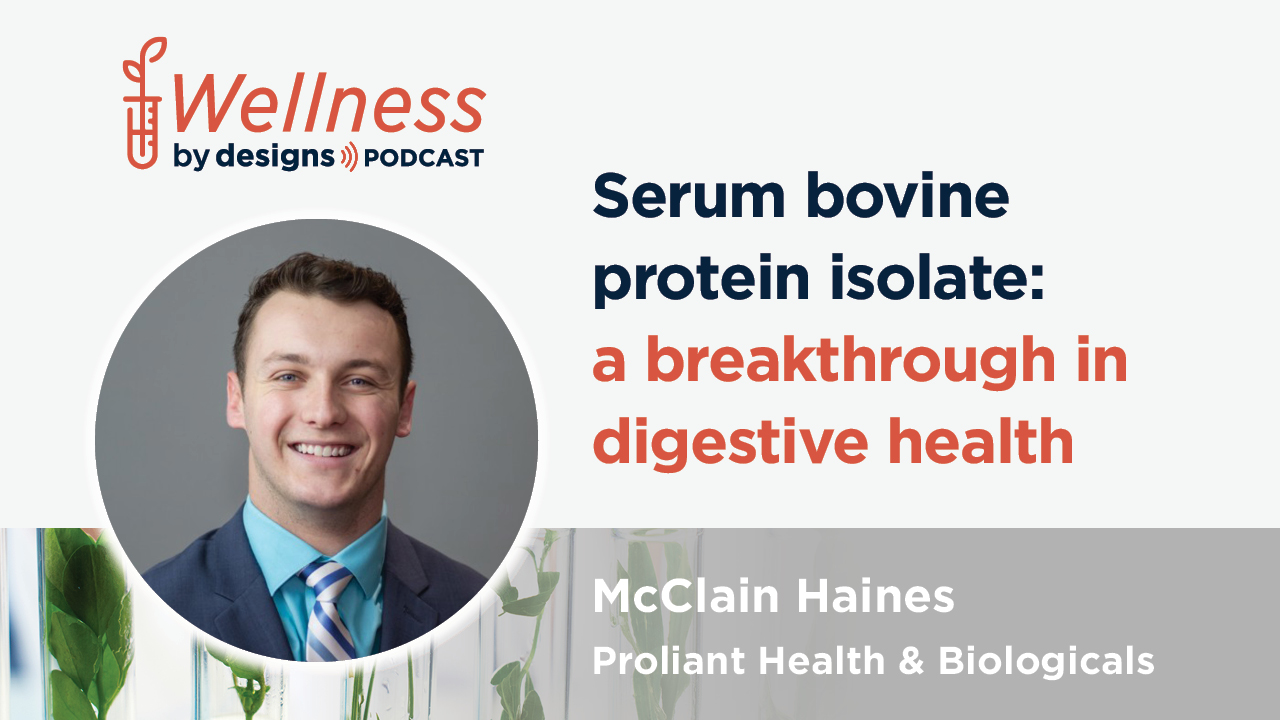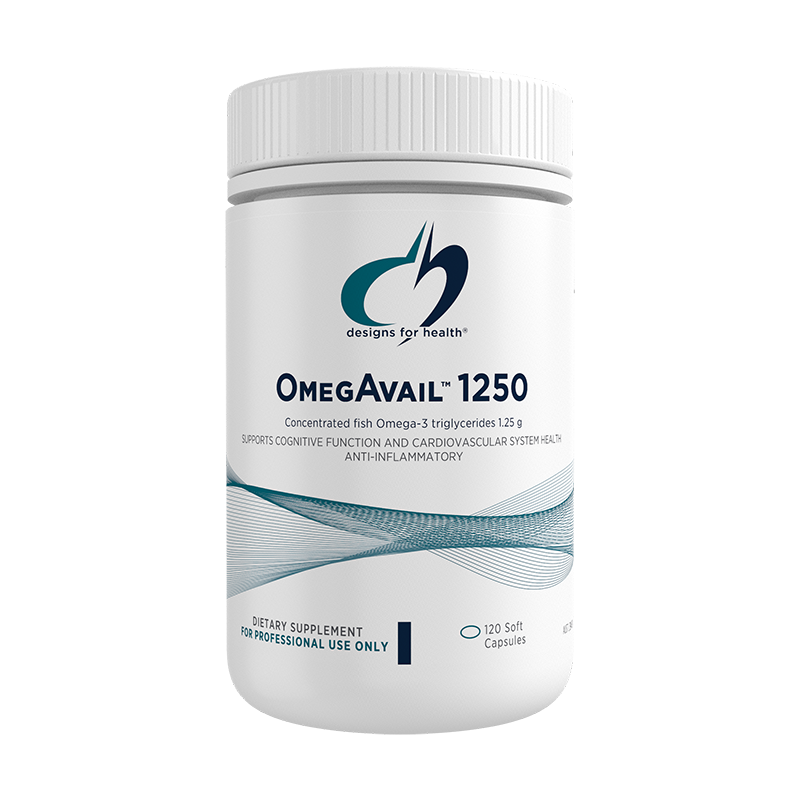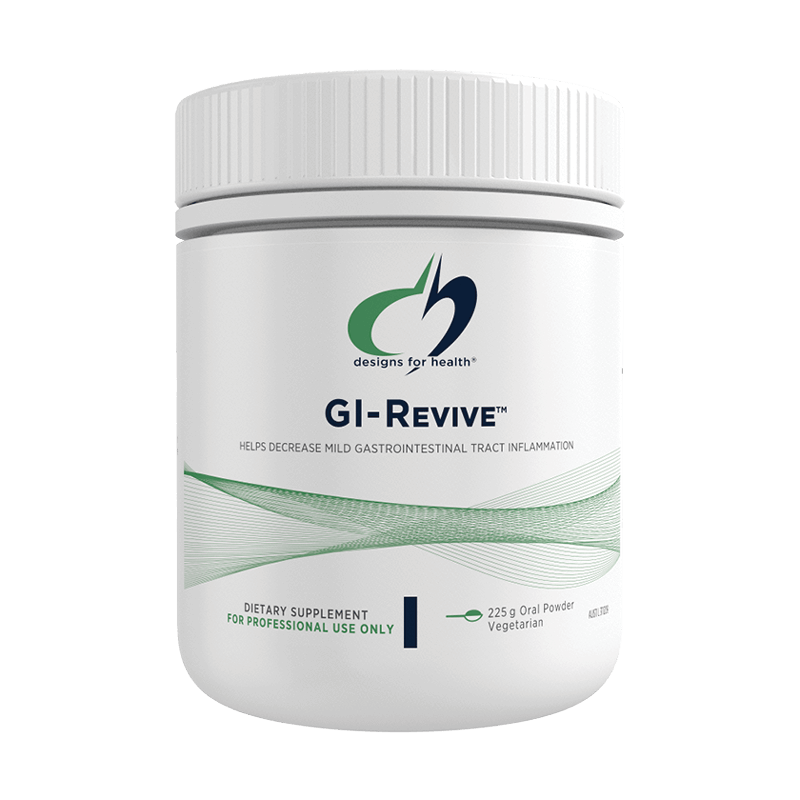
Do you ever wonder what the secret could be to revolutionising gut health?
In this episode, we chat with Mac Haines from Proliant Health in the USA, Who shares with us the extraordinary properties of the serum bovine protein isolate. An ingredient that is backed by over 45 human clinical trials on various gut disorders, providing promising results for a range of conditions.
We also discuss a study done in partnership with Cryptobiotics, showcasing the product’s prebiotic effects and capacity to reduce antigen load in the gut. The insights we gain from a study conducted at the University of North Texas are eye-opening, indicating that increasing doses of this ingredient can reduce LPS levels in the body.
Tune in to explore with us how this incredible product could be the key to transforming gut health and well-being.
About McClain Haines
McClain Haines is the lead ImmunoLin representative for Proliant Health & Biologicals, a bio-pharmaceutical company focusing on utilizing serum antibodies for use in prescription and dietary supplement products for digestive health, immune support, and sports nutrition. A curious and dedicated problem solver, “Mac” as he goes by, has been formulating new products and driving value in the pharmaceutical and dietary supplement space for 3 years. Prior to his time at Proliant Health & Biologicals, Mac aided the placement of many health care providers throughout the state of Iowa. He may have studied Business at Iowa State University, but his passion has always been helping people which has made him a valuable team member for PHB. When he is not formulating new products with his team, Mac loves spending time with his fiancé’, playing sand volleyball, slow-pitch softball, and cheering on the Iowa State Cyclones.
Follow us on Socials
Instagram: Designsforhealthaus
Facebook: Designsforhealthaus
Transcript
Introduction
Andrew: This is “Wellness by Designs,” and I’m your host, Andrew Whitfield-Cook. Joining us today is McLain Haines, who’s a patient advocate with Proliant Health in the USA, and we’re going to be discussing a very exciting, and I mean really exciting, raw material. Welcome to “Wellness by Designs.” Mac, how are you? Now, forgive me. I’m gonna say Mac, because everybody knows you as Mac.
Mac: I’m doing amazing, Andrew. Thanks for having me on the show. Really excited for, like you said, what we’re talking about today. There’s so much that we can’t even cover, but, in this segment, but we’re gonna do the best we can.
Andrew: Yeah. Now, I love your work because you talk and you work with gastroenterologists, and even quite orthodox medical practitioners in the States, getting this product to help people with gut complaints. Can I get you to talk about, a little bit about what you do?
Mac: Yeah, of course. You know, kind of like Andrew was saying, I kind of help educate on the mechanism of action with this product, and how exactly it is addressing a lot of the underlying cause of inflammation for patients and consumers, and attacking that and removing it before it can cause that response. So, a lot of my part over here is, again, educating gastrologists, but also educating our naturopaths, educating consumers, and helping launch amazing new products with great companies, like “Designs for Health,” who’s brand new in the area for Australia, and bringing this ingredient over there.
Andrew: And so, let’s discuss exactly what this product is. We’re sort of restricted by what we can say, so I’m gonna leave it to you. What exactly is it?
Mac: Yeah. So, it’s just a serum bovine protein isolate. And that isolate is super high in IgG. A lot of people, when they hear IgG, they instantly think colostrum, is what comes to their head. What we have here is an alternative to colostrum, since it’s derived from serum, and it’s actually double the amount of IgG. That IgG, which is a polyclonal antibody, at this point, everyone understands, antibodies target the bad guys, you have one here that is super-concentrated, and binds and removes over 46 different pathogens. Like Candida albicans, that H. pylori, LPS, which we know makes up about 60% of the antigens in the GI tract. This specific antibody is going to work its way through the GI tract, bind, neutralize, and remove those pathogens before they can set off that inflammatory response.
Andrew: Can I just, for my own benefit, probably, here, forgive me everybody for my ignorance, but in the past, I’ve concentrated on more secretory IgA, you know, lactoperoxidase, lactoferrin, glycomacropeptides, as being the sort of “actives” in colostrum. We’re looking, we’re concentrating IgG here. Can you just take us through how does it work? What’s it…like, is it a poly? That’s a five-sided antibody, right? Yeah.
Mac: No. Polyclonal just meaning it binds on to multiple pathogens compared to monoclonal antibodies, which is specific approach at one antigen. So, we have one here that doesn’t just bind onto one, two, or a couple. Like I said, it binds onto around 46, and the reason we went with IgG, and we concentrate in that area, is it’s most abundant in the GI tract. So, when we’re trying to resolve a GI issue, we want something that’s gonna be most polyclonal throughout your digestive system.
Andrew: Okay. So, again, we’re mentioning colostrum previously. So, is this something that still has those dairy proteins in it, or… You said that no, this is from serum. So, are there any issues with those people that are sensitive to dairy, even I’m gonna say, IgE-sensitive?
Mac: And, love to go on this with you, Andrew. We know about 20% of the population does have a dairy allergy. The amazing thing is, like you said, this is derived from serum. So, if this is gonna be someone that maybe has a dairy allergy, has a lactose issue, they’re not gonna have a problem with this product, because it is lactose-free, it’s double the amount of IgG, and it’s a super-clean protein. So, say you take 2 grams of this product. You’re essentially getting 2 grams of protein and all the benefits of that IgG, and binding up any potential inflammatory triggers before they set off the response.
Andrew: All right, this… My mind’s going here, like, going in all directions. Okay. Speaking, just following on with allergies. So, what about other antigens? What about, let’s say use with, say, those people on blood-thinning medication, NOACs, and other things that might have effects on platelet aggregation, things like that. Any effects in these sort of drug classes?
Mac: Shouldn’t have any effect, especially within your bloodstream. This product, we know, is a non-systemic product, so, again, it’s just working locally through the GI tract, so you’re never gonna have an issue when it comes to elevating your IgG levels or your IgA levels, which we know can lead to other issues for those patients.
Andrew: Okay. And what about things like, let’s say, contaminants, antibiotics, hormones? They’ve been a big issue in the past.
Mac: Yep. Again, no contraindication. If anything, they could work better together, very synergistically. We’re just working locally in the GI tract to remove that antigen, while your antibiotic, obviously, can fight in other areas for you. To talk…
Andrew: Okay. And also…
Mac: a little bit more on the safety and efficacy for this product… Sorry to cut you off there, Andrew. This product was initially launched in 2013 for the dietary management for patients with IBS-D, IBD, Crohn’s, ulcerative colitis, as well as HIV enteropathy. We know this is a population that can be the most immunosuppressed, and have the most digestive distress. So, you have an ingredient here that’s backed by over 45 human clinical trials on IBS-D, on Crohn’s, ulcerative colitis, but even SIBO, that small intestinal bacterial overgrowth, we know this is an antibody concentrate that goes after the bad bacteria that is an overgrowth in that area, and starts to remove it over time. Again, reduce the inflammatory trigger, get that gut barrier a chance to contract back together, and build a healthy base. Again, your patients are gonna absorb more water, nutrients, and protein that they need to live a healthier, happier life.
Andrew: Okay. So, this was gonna be my next question, regarding, you know, those people that have got not just leaky gut, but also, I’m over saying the word here, but fulminant, but, you know, really bad leaky gut issues, with zonulin, you know, being activated, being broken down, and the cells leaking apart. We don’t have an issue with the IgE leaking through there? It actually heals…
Mac: Absolutely not. You’re just giving the gut barrier a chance to heal. The reason these patients have this digestive distress consistently over time is because they continuously have a leaky gut, or they have a gut barrier that has deteriorated, and now it’s just a free flow of different bad bacteria and antigens consistently setting off an inflammatory response, and again, they’re just on a hamster wheel of GI inflammation, and they just can’t get off, because that gut barrier needs time to heal. All we’re doing is binding and removing those pathogens that cause that inflammation, and again, the body wants to heal itself, and we’re giving it the chance to now contract back together, rebuild those tight junction proteins, that zonulin in there, and again, reduce the effect and opportunity for other antigens to slip through and cause a response.
Andrew: And what about effects on the microbiota mucosal production? Like, for instance, we’ve got, you know, one layer of mucus, seemingly, in the small intestine, and two mucosal layers in the colon, in the large intestine. Any changes of the microbiota that you’ve seen? Any changes in the diversity, and also maybe the populations, maybe, I don’t know, inhibiting Firmicutes and promoting Bacteroidetes? Like, anything that you can elucidate
Mac: I’m glad you asked, Andrew. We did have some amazing new data, where we partnered with a group here in the States called Cryptobiotix, and we knew this was amazing at reducing those antigens that cause the inflammation, but could this also feed the good stuff as well? This amazing study led us to the conclusion that when we looked at these patients and these donor stools, and they were being fed, obviously, this serum bovine protein isolate, consistently, over time, it wasn’t just decreasing their antigen load, but it also had prebiotic effects, increasing butyrate, acetate and propionate as well. Just an amazing side effect that you’re getting with this product of not just removing the bad guys, but you have the opportunity to feed the good guys as well.
Andrew: And are we talking about antigen load purely in the gut? What about systemically? What about in the bloodstream, even affecting perhaps, I don’t know, dermatitis, psoriasis, things like inflammatory conditions that might be affected, not caused by, but affected by gut permeability?
Mac: Yeah. To speak off, in the blood, if there’s an antigen increase, is, we did a clinical trial at the University of North Texas here in the States. We knew, again, this product was amazing for, you know, the super-inflamed and super-immunosuppressed population. But what about Mema, who took a vacation somewhere, ran across some type of antigen, and now she’s having digestive distress? What if we can help the healthy-age population as well? In this case, we were feeding college kids a high-fat diet, that consisted of two slices of pizza. Was, of course, elevating their LPS and their blood levels, and setting off and leading to some kind of response. Maybe could have been bloating, could have been some type of inflammatory response causing an issue. So, from day zero, they were fed that piece of pizza, and then they were put on 45 days of consecutive supplementation of this serum bovine protein isolate. Again, that was measured at 1, 2, and 4 grams, but at any of those doses, on day 45, when we measured their blood levels, and see if we could see a spike in that LPS, it barely even rose, showcasing that when we can secondly supplement this product, we continuously remove LPS and different antigens that could get into the blood levels and cause a response. So, you’re essentially just sending in the bodyguards, continuously remove the bad guys, get everyone out of the building, so they can’t cause a fight or an issue.
Andrew: Okay. So, that was on LPS in, basically, well people, and what you said there is basically, what is it, 1, 2, 4 grams, no real difference between the doses? So, smaller doses is as good as 4?
Mac: Of course, the more you take of this product, the more effective it’s gonna be. So, antibodies bind antigens. If you take 10 grams of the product, you’re gonna bind up a lot more antigens. But if you take 1 gram of this product, you may bind up a different, you know, a couple at a time. So, the more you take, the more effective, of course, it’s going to be. But for your everyday population, around 2.5 grams to 2 grams we see as the optimal dosing to relieve those symptoms in a good three to four weeks.
Andrew: And so, what about in more fulminated conditions, like Crohn’s? You mentioned inflammatory bowel disease, like ulcerative colitis. Do you tend to go in hard first, and do a step-down, or do you tend to say, “Hey, let’s let the patient get used to this?” What’s the dosage regime? Do you go up or down?
Mac: We actually go up. A lot of our gastroenterologists also recommend to go up, because this is an overload approach. It’s to bind up as many different antigens, especially for that populations that has Crohn’s and ulcerative colitis, they’re gonna be super-inflamed, they’re gonna have a super-high antigen load, so the whole idea is to overwhelm all that bad bacteria, get as much bound up, neutralized, and start the process of removing those.
Andrew: Gotcha. So, no sort of issues
Mac: And once that healthy gut barrier has restored itself, we can titrate down to a lower dosing as a maintenance dose.
Andrew: Right. Sorry. So, my misnomer there. So, you start high and step down once the patient gets better, rather than letting the patient get used to it bit by bit?
Mac: Absolutely. Yes.
Andrew: Gotcha. Okay. And no issues with Herxheimer’s reaction? No issues with, you know, sort of the dumping of toxins that people sometimes experience?
Mac: I mean, in all of our clinical trials, there’s no major adverse events. Some feedback we get a lot, especially those that have a heavy diarrhea symptom to everything, is they say…
Andrew: Right.
Mac: …”I feel constipated,” or maybe, “I feel a little full.” We always say, “That’s good. That means you know a reaction’s happening in there. How many days are you, do you think you need to go to the bathroom a day?” Well, they say, you know, like, five to six. Once they get down to maybe one or two, they’re not used to that feeling, and it’s just a big aha moment for them, like “Wow. This is kind of the daily limit I need to go to the bathroom.”
Andrew: That’s actually a, that’s a really interesting point. That’s a whole nother podcast about what we’re used to, and, you know, change it. But I take your point about, you know, once you initiate any therapy, I’ve often said this, and it was actually an integrative doctor, not far from me, in Robina, who said, “I don’t mind if it’s a bad side effect necessarily, or perceived as bad, because I can adjust that. I’m confident enough that I know what to do. I don’t mind if it’s a good side effect, because that just makes my head get bigger.” And he said, “The problem that I have is when I see no change, and that’s when I’m dead in the water. I gotta go revisit everything.”
Okay. So, we’ve mentioned a few things here. So, you’ve mentioned mainly gut, but also some skin disorders. I’m sorry, but my mind’s going hell for leather here. So, if we’re talking about changing the immune response, majorly in the gut, but that which can affect distal sites, we can go anywhere from, you know, IBS-D, IBS-C, IBS mixed. We can go inflammatory bowel disease. We can go remedial stuff, like bloating and things like that. But then you can go to skin disorders. You can even go into, maybe as a second-line therapy, for mental health.
Mac: I mean, we all know it starts in the gut, right, Andrew? And if you have a leaky gut, and it continuously is being inflamed, again, that’s affecting your cognition, you were talking about. That could be affecting your skin and your appearance. If we can heal up the gut lining, we absorb more of those key nutrients we need to live a healthier, happy life, to take in more water, more protein.
Andrew: Okay. I’ve got another one for you. Long COVID. CFS. Multiple… Sorry. Myalgic myeloencephalitis. You know, this has raised its head recently. It’s far more prevalent than what was admitted to in the orthodox research. What about this sort of thing?
Mac: Yeah. We do have some amazing ongoing research, where we did, we’re doing a clinical trial at the university, or, not the university, in Barcelona, Spain, looking at the specific spike protein that was in COVID, and in seeing if this, you know, immunoglobulin had a chance or an opportunity to bind and help inhibit that spike protein. Obviously, the results in that clinical trial will be summed up, I believe, at the end of this year. But of course, I’ll make sure to give you that information as soon as we can, Andrew, and the results.
Andrew: Okay. So,
Mac: Now, with long-haul COVID… Sorry about… Sorry to cut you off, Andrew, but with long-haul…
Andrew: No, no. You go. You go.
Mac: …COVID, we know, that comes with a lot of different distress, not just affecting, obviously, your digestive issues, but people being more fatigued, mental health cognition issues, a whole list of different areas, and just anecdotal from our gastroenterologists is they’ve seen a lot of success utilizing this serum bovine immunoglobulin on their patients that have long-haul COVID, because, again, maybe we can’t directly affect that long-haul COVID, but we can reduce the antigen load that’s gonna cause a worse response, or cause a response later on. So, when we continuously remove antigens, we limit the opportunity for an inflammatory trigger.
Andrew: I’ve got another one. I hear you mentioning 45 clinical trials, and my mind’s going ballistic here. So, what about weight management? You know, we know that people who are overweight have a worse issue with increased LPS migration. Any research here that you’ve done?
Mac: Yeah, of course. Like you’re saying right there, if they have an elevated LPS, this is gonna be an amazing product because we know it binds and removes LPS.
Andrew: Yeah.
Mac: Again, you are what you eat, but if you have a healthier gut barrier, you’re absorbing more of the key nutrients, you’re gonna feel better, you’re gonna work harder in the gym, and you’re gonna live a healthier, happier life, because you’re not gonna have those issues and the side effects you have from eating differently or changing a diet.
Andrew: And so, what about some other of those… I’m just looking at here, 45 human clinical research trials. How do we find them? I mean, I’ve got to ask you, can we please put these up on the Designs for Health website, because this is just, this is blowing my mind.
Mac: I will obviously wanna sit down and talk with Designs for Health because we wanna get this information to the world. If you really wanna do a deep dive and look into our research, you can visit prolianthealthandbiologics.com.
Andrew: Yeah.
Mac: So, just www.phb1.com. And we will have our full list of every single clinical trial we’ve done on, again, IBS-D, IBD, leaky gut, celiac, non-celiac, HIV enteropathy. Again, this is gonna be one of the most clinically studied supplements over in Australia as of now on safety, efficacy, and the effectiveness it has in these issues, because it’s removing the underlying cause of the inflammation, that antigen, and getting it out before it can cause a response.
Andrew: Mac, I’m so sorry to keep you. I know that you’re really busy, but just one last question before you go. How was there dealing with the regulatory bodies in Australia for you? Because this is a totally new product. We haven’t seen anything like this before.
Mac: Yeah. For the regulatory process, I actually kinda wanna start here in the States. You know, we originally launched it, like I said, in 2013, as a medical food, for the dietary management, all these different issues. But, all this product is, guys, is a super-clean protein, that’s super high in IgG, and there’s no reason we couldn’t launch this as a supplement, and everyone could be taking this product. And when we explained that to the FDA back in 2018, it was a no-brainer for them that if we launched it at a lower dosing, around half the dosing, everyone was able to take this product, and is now is amazing product here in the States, that’s helping manage digestive distress, immune issues, but, cognitive, skin issues, so many different areas. It’s being utilized by dermatologists, different doctors, for many different issues.
Of course, it was amazing that we launched it with the U.S. company, Designs for Health, here in the States. And it just so happens that Designs for Health Australia is a company that came to one of our talk shows and learned a little bit about and said, “How do we get our hands on this, and how do we share this with everyone in Australia?” So, going through different regulatory process ways, there is some things that kind of cause an issue when it comes to administering it as a supplement over there. But of course, since we have a New Zealand plant, it was very easy for Designs for Health Australia to be able to ship that product directly in, and help launch it as their own supplement.
Andrew: Forgive me, Mac. I know that you’re rushed for time, but can I just ask… We didn’t even talk about autoimmunity, but can I ask about things like mixability? Like, and, you know, let’s say, heat stability? Can you cook with this? How do you take it? Can you put it in water, juice, whatever?
Mac: Yeah. So, the product is really flavourless. It really just tastes like whatever you mix it in. We do recommend when it comes to baking, it would have to be a super-slow process, and maybe an area you shouldn’t go towards. The IgG in this product does denature if you get above 142 degrees Fahrenheit. I’m not sure what that would be, obviously, on the scale on your guys’s end. But of course, if you have a product you like to put in your coffee every morning, maybe let the coffee simmer down a little bit, and cool off before you put the product in. But as far as being too cold, you’re gonna have no issues there, and, you know, you could mix it in anything. My dad puts it in his pudding. I like to put it in my smoothies. Coffee, water, your favourite flavoured beverage, whatever works, take the product and get it down.
Andrew: So, I just looked it up. 142 degrees Fahrenheit is 61 degrees Celsius, so, I think 65 is the, you know, supposed level at which a cappuccino is made, so maybe just, as you say, let it cool for a little bit. Yeah. There you go, yeah? Coffee.
Mac: And I hope no one is drinking 65-degree Celsius coffee.
Andrew: Oh, yeah. But McLain Haines, Mac, thank you so much for coming on to the “Wellness by Designs” podcast. I can’t thank you enough. This is really exciting stuff for me. Because, like, I see, I can see colostrum sales dropping through the floor, but it’s a product which was never fully utilized to what it…I’m talking colostrum here because people had issues with dairy. But this is just so… Like, this is ground-breaking. This is unreal. So, I just, can’t thank you enough for taking us through this today. I’m certainly looking through this research to see where it can be used. That’s well done. Well done for you.
Mac: Andrew, thank you so much for having me on and helping get this to the world. I’m so thankful for companies like Designs for Health Australia helping share it with the world. So, if you’re looking to try this product, and if you’re looking to manage your antigen load and reduce that inflammatory response and reduce your symptoms, they’re the people to go to to get this product.
Andrew: Awesome work. And thank you, everyone, for joining us today. I’m sorry, I’m so excited, still. You can get all of the show notes, and all the other podcasts, on the Designs for Health website. I’m Andrew Whitfield-Cook. This is “Wellness by Designs.”








 Exploring Integrative Dentistry with Dr Ron Ehrlich
Exploring Integrative Dentistry with Dr Ron Ehrlich Essential Insights into Gallbladder Function and Care with Amie Skilton
Essential Insights into Gallbladder Function and Care with Amie Skilton Natural Strategies for Men’s Health with Naturopath Jason Mallia
Natural Strategies for Men’s Health with Naturopath Jason Mallia